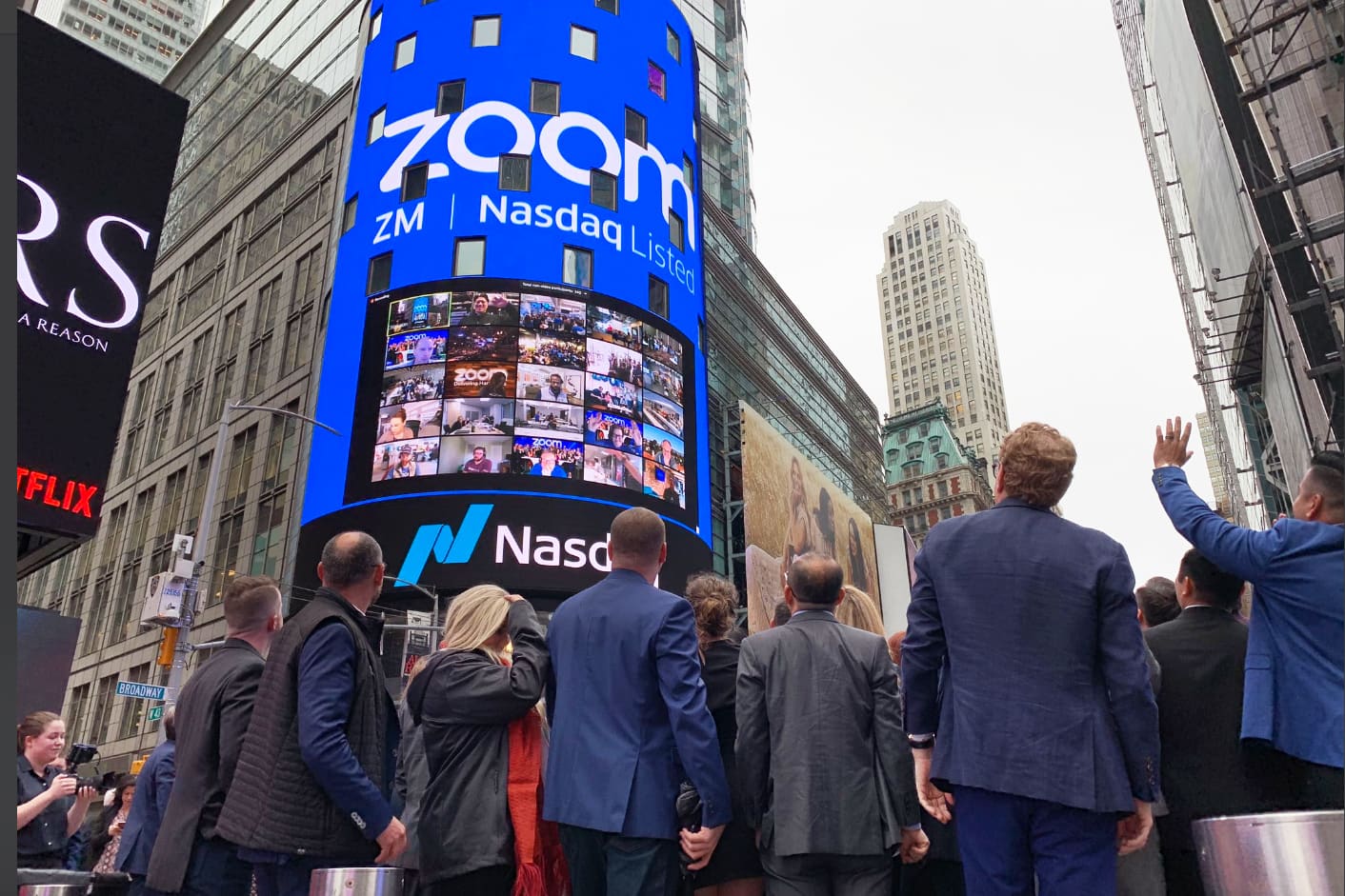Zoom on pace for its worst day ever after Wall Street slashes price targets

Source: Nasdaq
Shares of Zoom were down more than 18% on Tuesday, on pace for its worst day ever, after the video-chat company warned investors of a revenue growth slowdown, leading Wall Street firms to cut price targets on the stock.
If it holds, it’s the biggest one-day drop since Nov. 9, 2020, when shares fell 17.3% to $413. The company’s stock price has more than halved since then and was trading at about $198 per share as of mid-morning on Tuesday.
Zoom was one of the pandemic darlings, going from a relatively niche business software segment to a household product. Millions of people used the company’s tech over the past nearly two years in order to keep up with school, work or socializing. But growth is slowing as people return to work and school.
BTIG, which lowered its price target to $400 from $460, reiterated its buy rating, but said the cut was to “better reflect current market sentiment and group multiple compression.” Deutsche Bank Research also lowered its 12-month target to $280 from $350.
“While we’re positive on Zoom’s strategic initiatives and investments in key growth areas, we find it tougher to like a stock with more sharply decelerating growth and incremental pressure on profitability,” Deutsche Bank wrote in a Tuesday note.
Baird, Guggenheim, Wells Fargo, Stifel, UBS, Piper Sandler and KeyBanc also dropped their price targets. But Wall Street is generally still bullish on Zoom’s future.
“Moderating growth has been, and could continue to be a near-term stock headwind, though we remain positive on the long-term growth and platform opportunity particularly as the growth rate troughs over the next couple quarters,” Baird researchers wrote Tuesday.
Zoom’s revenue increased 35% from a year earlier in the quarter, which ended Oct. 31, slowing from 54% growth in the quarter before. For the fiscal fourth quarter, Zoom forecast adjusted earnings of $1.06 to $1.07 per share on $1.051 billion to $1.053 billion in revenue, which implies 19% growth.
— CNBC’s Michael Bloom and Jordan Novet contributed to this report.